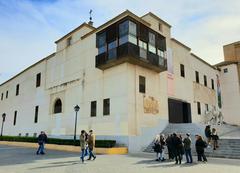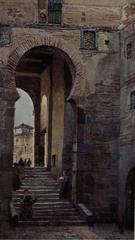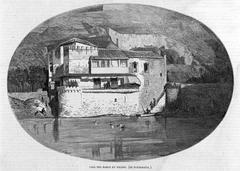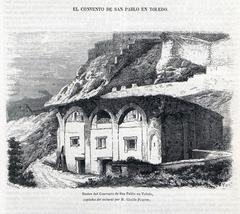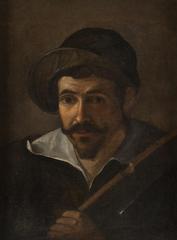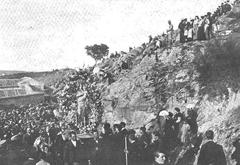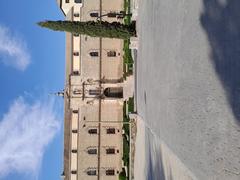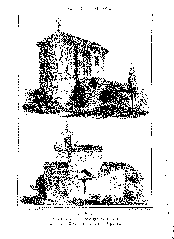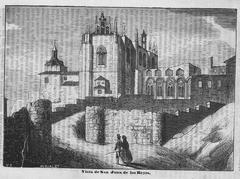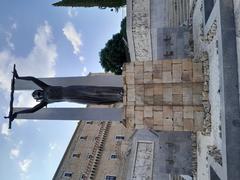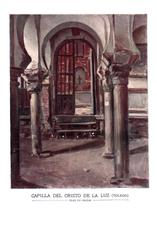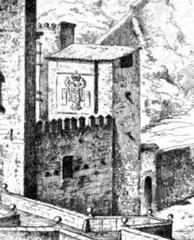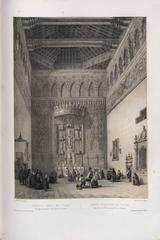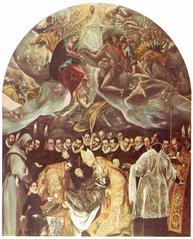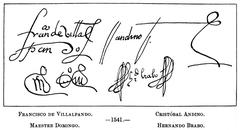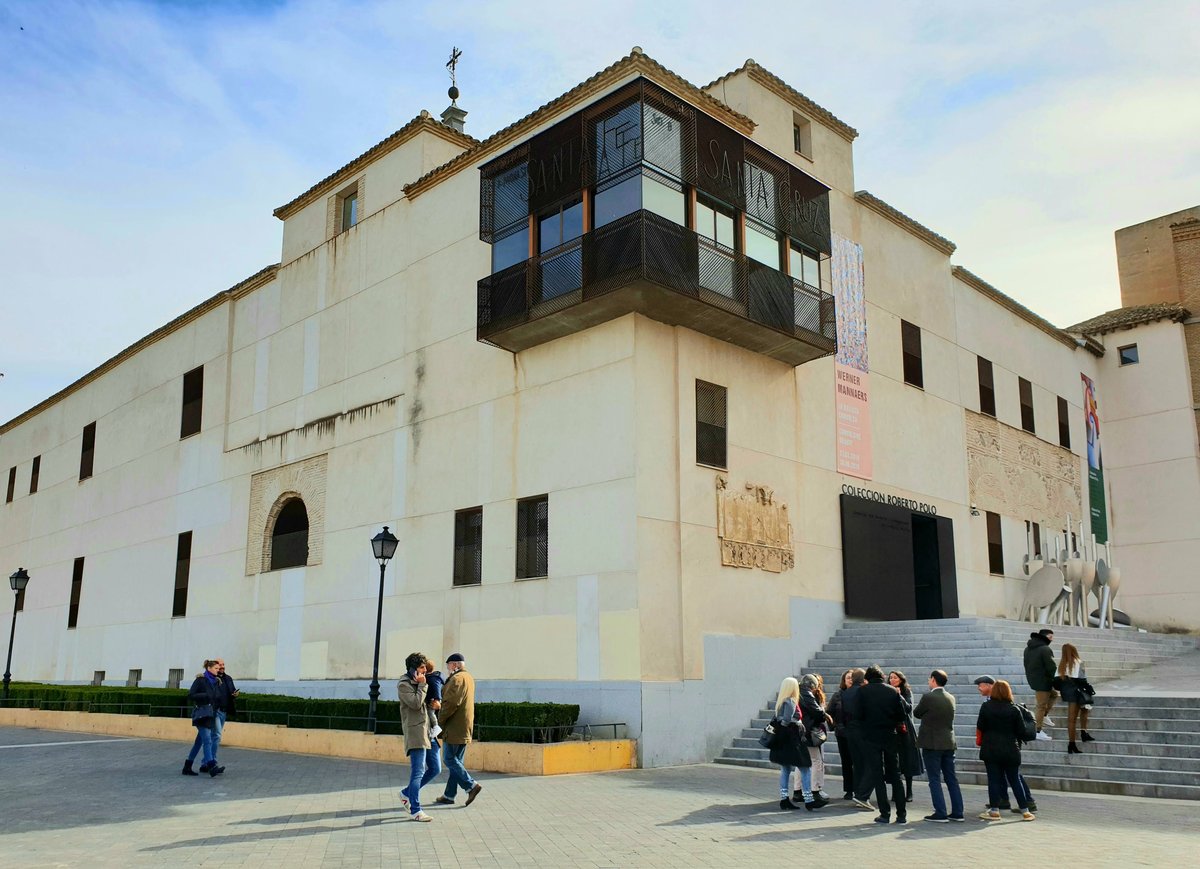
Visiting the Collection Roberto Polo in Toledo, Spain: The Complete Guide
Date: 14/06/2025
Introduction
Set in the heart of Toledo, the Collection Roberto Polo is a premier cultural destination that bridges the city’s storied history with the vitality of modern and contemporary art. Housed in the historic Convento de Santa Fe—a monument spanning architectural styles from the 9th to the 18th centuries—this museum showcases an exceptional private collection focusing on avant-garde works from Central, Eastern, and Northern Europe, as well as the United States. The Collection Roberto Polo not only fills an important gap in Spain’s art scene but also reinvigorates Toledo’s identity, making it a must-visit for art enthusiasts, cultural travelers, and anyone keen to explore the intersection of history and innovation (coleccionrobertopolo.es; elpais.com).
This guide offers a comprehensive overview for prospective visitors, including practical details like opening hours, ticketing, accessibility, and guided tours, as well as insights into the collection’s historical context, cultural significance, and impact on Toledo’s tourism and artistic reputation.
Table of Contents
- Introduction: Why Visit the Collection Roberto Polo in Toledo?
- Roberto Polo and the Origins of the Collection
- The Museum’s Establishment in Toledo
- The Convento de Santa Fe: Historical and Architectural Context
- Visiting Information
- Cultural Significance and Institutional Mission
- Collection Highlights
- Museum Layout & Accessibility
- Special Exhibitions & Community Engagement
- Visitor Tips and FAQs
- Conclusion & Final Recommendations
- References
Why Visit the Collection Roberto Polo in Toledo?
The Collection Roberto Polo is more than a museum—it is a transformative space where the avant-garde meets Toledo’s deep-rooted heritage. Visitors encounter an ever-evolving display of over 250 works, drawn from a total private collection of more than 7,000 pieces. Here, art lovers will find masterpieces by both celebrated and lesser-known artists whose work has shaped the trajectory of modern and contemporary art. The museum not only enriches Toledo’s cultural scene but also positions the city as a destination for contemporary creativity, complementing its world-famous medieval and Renaissance monuments.
Roberto Polo and the Origins of the Collection
Roberto Polo, a Cuban-American art historian and philanthropist born in 1951, assembled his collection with a vision to spotlight overlooked artistic movements and creators. Polo’s journey—from early life in Havana and displacement to Miami, to academic pursuits in the United States, and a career as an artist, gallerist, and Citibank art investment specialist—shaped his passion for collecting works that expand the narrative of 20th- and 21st-century art (cultura.castillalamancha.es; elpais.com).
Polo’s focus on acquiring art from Central, Eastern, and Northern Europe, as well as the United States, addresses a significant gap in Spain’s public art institutions, which traditionally spotlight Western European and Spanish artists.
The Museum’s Establishment in Toledo
The Collection Roberto Polo found its home in Toledo through a landmark agreement with the regional government of Castilla-La Mancha in 2018. Initially bringing 445 works valued at €368 million to public display, the collection is presented on a rotating basis at the Convento de Santa Fe. The museum, officially known as the Colección Roberto Polo. Centro de Arte Moderno y Contemporáneo de Castilla-La Mancha (CORPO), opened in March 2019 as one of the few government-created institutions devoted to a private collection (arteinformado.com; coleccionrobertopolo.es).
The Convento de Santa Fe: Historical and Architectural Context
The museum’s setting, the Convento de Santa Fe, is itself a historic treasure. Its origins as a caliphal and taifa palace date to the Islamic period of Toledo, with subsequent transformations reflecting Mudéjar, Gothic, Renaissance, and Baroque influences. The adaptive conversion to a museum, directed by architect Juan Pablo Rodríguez Frade, preserves these layers, creating a compelling backdrop for the avant-garde art on display (coleccionrobertopolo.es).
Visiting Information
Location & Address
- Convento de Santa Fe, Toledo, Spain
Opening Hours
- Tuesday to Sunday: 10:00 AM – 6:00 PM (some sources note closing at 7:00 PM; check the official website for current details)
- Closed Mondays and public holidays
Tickets & Admission
- General Admission: €8
- Reduced Admission (students, seniors): €5
- Free entry for children under 12 and Castilla-La Mancha residents
- Tickets available online or onsite; advance booking recommended in peak periods
Accessibility
- Full wheelchair access with ramps and elevators
- Adapted restrooms and assistance available upon request
- Tactile guides and sensory tours for visually impaired visitors (Museo Roberto Polo - Accessibility)
Guided Tours & Special Events
- Daily tours in Spanish and English
- Group and family tours bookable in advance
- Regular workshops, artist talks, and special exhibitions
Getting There
- Located in Toledo’s historic center; easily reached by foot from major city landmarks
- Accessible by public transport, taxi, and car (limited parking nearby)
Nearby Attractions
- Toledo Cathedral
- Alcázar of Toledo
- Monastery of San Juan de los Reyes
- Jewish Quarter and Synagogue of El Tránsito
- Numerous restaurants and boutique hotels (Toledo Tourism)
Cultural Significance and Institutional Mission
CORPO is governed by the Fundación Colección Roberto Polo, dedicated to public engagement, research, and education. The museum is internationally recognized as a Sotheby’s Preferred Museum, aligning it with Spain’s most prestigious institutions (Toledo Spain Click). Its mission includes artist and art historian residencies, scholarly publications, and collaborations with local schools and universities to foster a vibrant, interdisciplinary cultural community.
Collection Highlights
Artistic Movements Represented
The museum’s holdings trace the evolution of key avant-garde movements, including:
- Cubism, Constructivism, De Stijl, Bauhaus, Dadaism, Surrealism, Art Deco, Abstract Expressionism, Geometric Abstraction, and Contemporary Art.
Notable Artists
- Theo van Doesburg: De Stijl pioneer of geometric abstraction
- László Moholy-Nagy: Bauhaus visionary
- Georges Vantongerloo: Sculptor and De Stijl co-founder
- František Kupka: Abstract art trailblazer
- Victor Vasarely: Master of Op Art
- Spanish Modernists and Central/Eastern European avant-garde figures including Władysław Strzemiński, Katarzyna Kobro, Otto Freundlich, and Jean Lambert-Rucki
Media and Genres
- Painting, sculpture, photography, graphic design, furniture, and decorative arts—reflecting a holistic avant-garde approach
- Many works are rarely seen outside private European collections
Museum Layout & Accessibility
- Galleries: Organized thematically and chronologically, with multilingual wall texts and digital guides
- Atmosphere: Spacious, well-lit galleries with seating areas for contemplation
- Accessibility: Ramps, elevators, adapted restrooms, and staff assistance ensure inclusivity
Special Exhibitions & Community Engagement
The museum regularly hosts temporary shows, artist residencies, educational workshops, and community outreach programs. Its events spotlight underrepresented artists and movements, promoting cultural diversity and sustainability (Museo Roberto Polo - Community).
Visitor Tips and FAQs
Photography
- Permitted without flash or tripods in most permanent galleries; check signage for restrictions on temporary exhibitions
Best Times to Visit
- Weekday mornings and late afternoons are less crowded; early evening visits offer a unique atmosphere
FAQs
Q: Can I buy tickets online?
A: Yes, via the official website.
Q: Is the museum wheelchair accessible?
A: Yes, with ramps, elevators, and wheelchairs available.
Q: Are guided tours available?
A: Yes, in Spanish and English; book in advance for groups.
Q: Are children welcome?
A: Yes, children under 12 often enter free, and family-friendly activities are available.
Q: What languages are supported?
A: Labels and guides in Spanish and English; staff also speak French, German, and Italian.
Conclusion & Final Recommendations
The Collection Roberto Polo in Toledo stands as a beacon of artistic innovation and cultural dialogue, offering visitors a rare opportunity to experience the richness of European avant-garde art within the evocative setting of the Convento de Santa Fe. With its dynamic exhibitions, inclusive facilities, and engaging educational programs, the museum is essential for anyone seeking to deepen their appreciation of art and history in one of Spain’s most beautiful cities.
Maximize your visit by booking tickets online, exploring guided tours, and combining your museum experience with walks through Toledo’s historic center. For updates on exhibitions, events, and travel tips, follow the museum’s official channels and consider using the Audiala app for an immersive audio experience.
